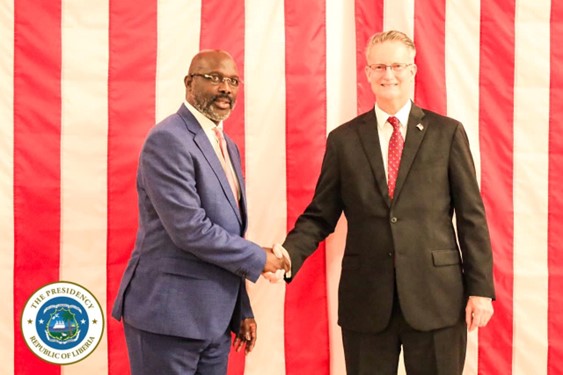Information accessed by the Hot Pepper suggests that, as of August 15, 2022, Liberia had less than 700,000 bags of rice in stock at combined warehouses, which could possibly run out in three weeks’ time. This, according to information, is due to rice importers slowing down the importation of the commodity due to government’s deceitful and cunny behaviour toward the importers, coupled with corruption.
Consumer statistics revealed that Liberia consumes about 900,000 bags of rice every month; therefore, as it stands, the country is bracing for the shortage of the nation’s staple food.
Sources contacted by the Hot Pepper revealed that the decision of the rice importers to slow down on the importation of rice is due to the Weah government’s failure to live up to its promise of subsidizing the importers, and agreement they claimed was reached between them and the government.
According to the sources, the importers have not received a dime from the government, even though the government claims that it has made available US$12 million as subsidy to rice importers. Some importers are now insisting that until the government pays them what it owes, they will not import the staple.
It can be recalled that the Weah administration promised to provide US$12 million to rice importers in the country as a means of subsidizing them to recover from the losses they incurred during the COVID-19 epidemic.
However, months after the government claims to have approve the funds, it appears like the money landed in the hands and pockets of elements of corruption in the regime, and has not yet reached the rice importers, whom the money is intended for.
President Weah approved USS$14 million after importers requested an increment in the price of rice on the local market, citing a hike in the cost of freight for shipment of goods worldwide.
Between 2020 and 2021 there was a large swing in containerized trade flows, which was met with supply-side capacity constraints, including container ship carrying capacity, container shortages, labour shortages, continued on-and-off COVID-19 restrictions across port regions, and congestion at ports.
This mismatch between surging demand and de facto reduced supply capacity then led to record container freight rates on practically all container trade routes.
This prompted Liberian rice importers to request an increment in the price of the commodity on the local market. They claimed the high cost of freight was hurting their businesses. They expressed fear that there would have been a shortage of rice on the market if there was no adjustment in the price.
This prompted the Liberian leader to hold a meeting with the Rice Importers Association a couple of months ago to come up with the decision of subsidizing their businesses.
In the meeting, which was attended by UCI, SWAT, Fouta, K&K and Fouani, President Weah insisted that government would not allow an increase in the price of the country’s staple food and, therefore, pledged the government’s commitment to underwrite the extra cost in the freight.
At the time, he requested the ministries of Commerce and Finance to work with importers and experts in government to find out how much it would cost the government to cover the additional charges to ensure the unhindered supply of rice to Liberia.
Meanwhile, some of the importers that were thought to have received the subsidy have confidentially informed investigative journalists that they have not received a dime from the government.
Currently, the price of a 25kg bag of rice has increased from US$13.50 to US$15.00 or more in some places in the country, and this amount only promises to increase in the days to come.
In the meantime, the rice importers are calling for the intervention of President George Weah to rescue the situation before it goes out of hand and bring about a scenario similar to what occurred in neighboring Sierra Leone recently.







